Welcome to a spiritual odyssey through the heart of India’s sacred traditions, where nature and divinity converge. Heptacodium miconioides, known as seven-sons wood, seven wood and sevan wood, is a revered entity deeply enmeshed in the fabric of Indian culture. This captivating exploration unearths the profound holy significance and enduring cultural relevance of this extraordinary wood in the spiritual tapestry of India.
Sevan wood, derived from the Heptacodium miconioides tree, is a botanical gem revered for its sacred significance and cultural prominence. This distinctive tree, also known as seven-sons wood, boasts elegant clusters of fragrant white flowers and lush green foliage.
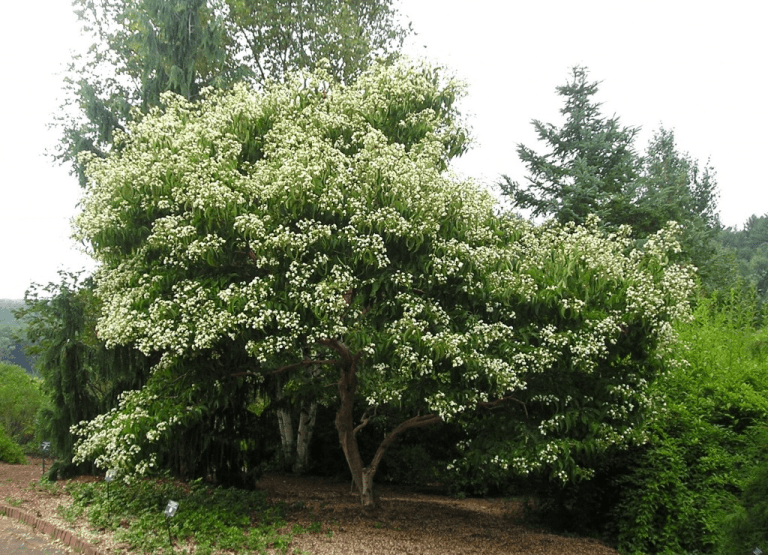
Beyond its ornamental charm, Heptacodium miconioides holds a revered place in Indian culture, often associated with spiritual practices and revered as holy wood.
The tree's historical roots intertwine with sacred traditions, making Sevan wood a symbol of reverence and spirituality, inviting a deeper connection to nature and divine energies.
Heptacodium Miconioides, aka Seven-Sons & Sevan Wood
Heptacodium miconioides often referred to as “Seven-Sons Wood,” are the same species, and the terms can be used interchangeably. In Indian culture it is most prominently referred to as sevan wood and seven wood, and used as a holy wood in the construction of wood temples.
Sevan wood, revered for its sacred attributes, is predominantly found in the serene realms of the Indian subcontinent.
This enchanting plant thrives in the tranquil niches of India’s lush forests and verdant landscapes, often nestled amidst revered temples and spiritual sanctuaries. Its presence graces the sacred lands of India, where its fragrant gifts have been cherished for generations.
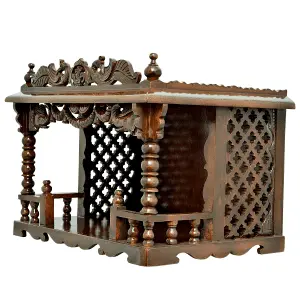
This deciduous shrub or small tree is scientifically named Heptacodium miconioides and belongs to the family Caprifoliaceae. It is native to East Asia, particularly China.
Seven Sons
The name “Seven-Sons Wood” is derived from the plant’s unique feature of having clusters of small, fragrant flowers arranged in whorls of seven. These flowers bloom in late summer and early fall, adding beauty and fragrance to gardens and landscapes. The shrub’s bark and leaves also have a distinct aromatic quality.
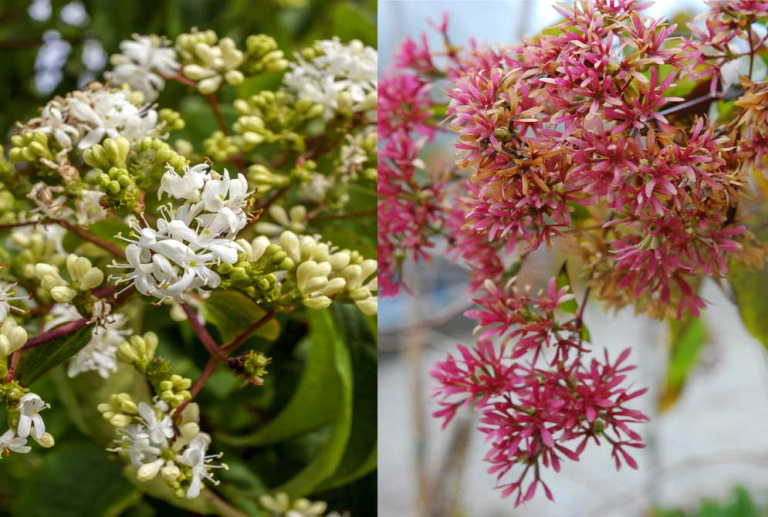
Seven-sons / Sevan Wood Flowers
The name “seven-son” refers to the fact that most of the flower clusters contain seven blooms. The name is derived from the flowers it bears.
Heptacodium:
- Hepta = seven
- codium = flowers
This name is an allusion to the seven-flowered heads of the inflorescence, referring to the complete flower head of a plant including stems, stalks, bracts, and flower.
Beyond its profound cultural significance, seven-sons wood captivates the senses with its resplendent blossoms. The wood is adorned with delicate, star-shaped flowers that bloom in profusion, adorning the landscape with hues of ivory and pink.
These exquisite blooms, evoking purity and divinity, hold a special place in Indian rituals and traditions, serving as a symbol of the profound connection between the earthly and the celestial realms. The allure of seven-sons wood extends beyond its physical form, as its ethereal blossoms whisper tales of spiritual resonance and natural grace.
The Ancient Reverence
Seven-sons wood is a testament to the profound reverence and spiritual significance that nature holds in Indian culture. For centuries, the Indian subcontinent has been a cradle of spirituality and mysticism, and every aspect of its environment, including the flora that graces its landscapes, is regarded as a sacred gift from the divine.
Seven-sons wood, with its enchanting presence, has been an integral part of this spiritual tapestry. It symbolizes the deep-rooted connection between humans and the natural world, emphasizing the belief that divinity is not just found in temples but is inherent in every living being and element of the Earth.
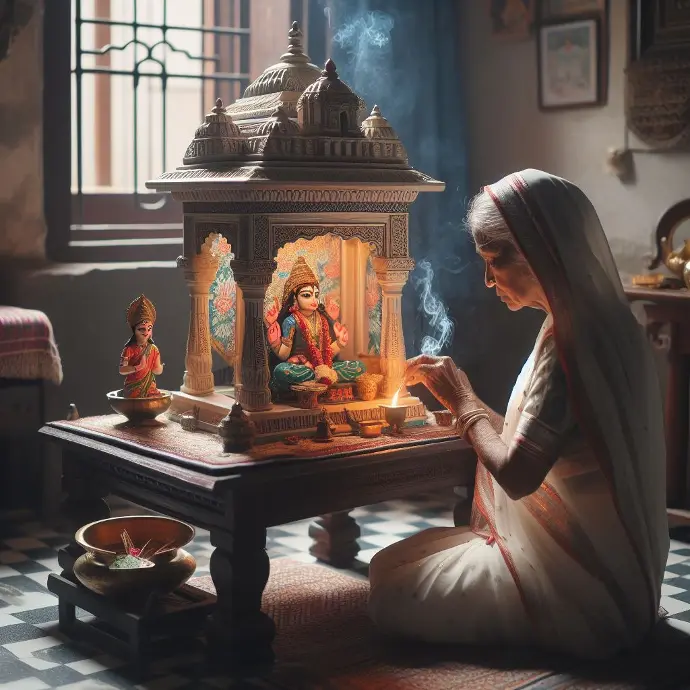
The wood of Heptacodium miconioides has been used in myriad sacred rituals and ceremonies, often employed in the construction of revered temples and altars like mandirs. Its fragrant branches and blossoms are regarded as offerings to the deities, a way to invite their blessings and presence into the sanctified spaces.
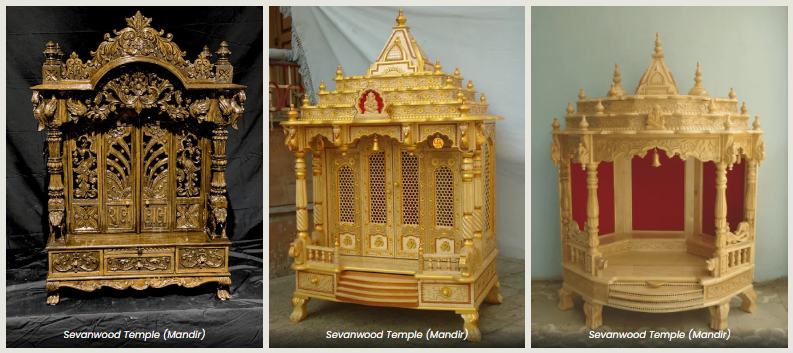
Mandirs made of sevanwood
Beyond the physical attributes, it embodies the spiritual essence of India, where harmony with nature and the recognition of the divine in all aspects of life are paramount. This ancient reverence for Heptacodium miconioides continues to echo through the ages, reminding us of the profound wisdom and spirituality that can be found in the simplest, most natural elements of our world.
The Essence of Spirituality
Seven-sons wood transcends the physical realm, becoming a vessel for spiritual connection. Its subtle fragrance carries prayers and meditations to higher realms, fostering an atmosphere conducive to inner reflection and mindfulness. Generations of spiritual seekers have turned to this sacred wood to guide them on their quest for enlightenment. Its presence has the power to quiet the mind and open the heart, allowing individuals to tap into their deepest spiritual truths.
A Sacred Transformation
Stories abound of profound transformations brought about by seven-sons wood. Seekers and devotees have recounted moments of inner peace and awakening in its presence. Its ethereal aroma has the capacity to elevate ordinary experiences to the extraordinary, making the mundane sacred. Through centuries, this sacred wood has remained a steadfast companion on the spiritual journey, offering solace and guidance to those who seek higher truths.
Sacred in Indian Spiritual Heritage
Heptacodium miconioides, the seven-sons wood or sevan wood, is a cherished treasure in India’s spiritual heritage. Its holy significance is a testament to its role as a bridge between the material and spiritual worlds.
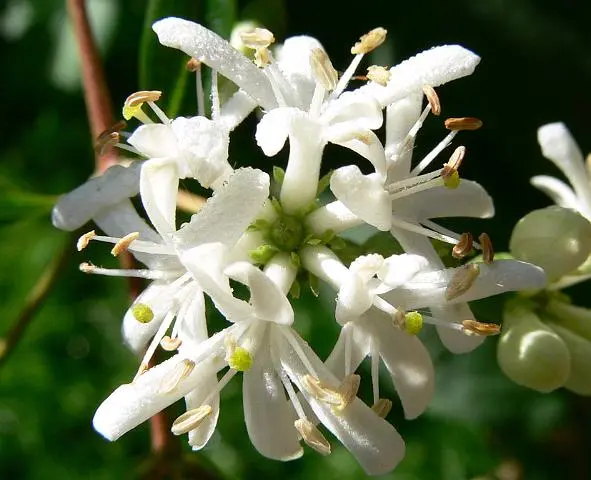
Beyond its fragrant aroma lies the power to awaken consciousness and transform lives. In every whisper of its scent, there is a reminder of the divine within and the boundless potential of the human spirit